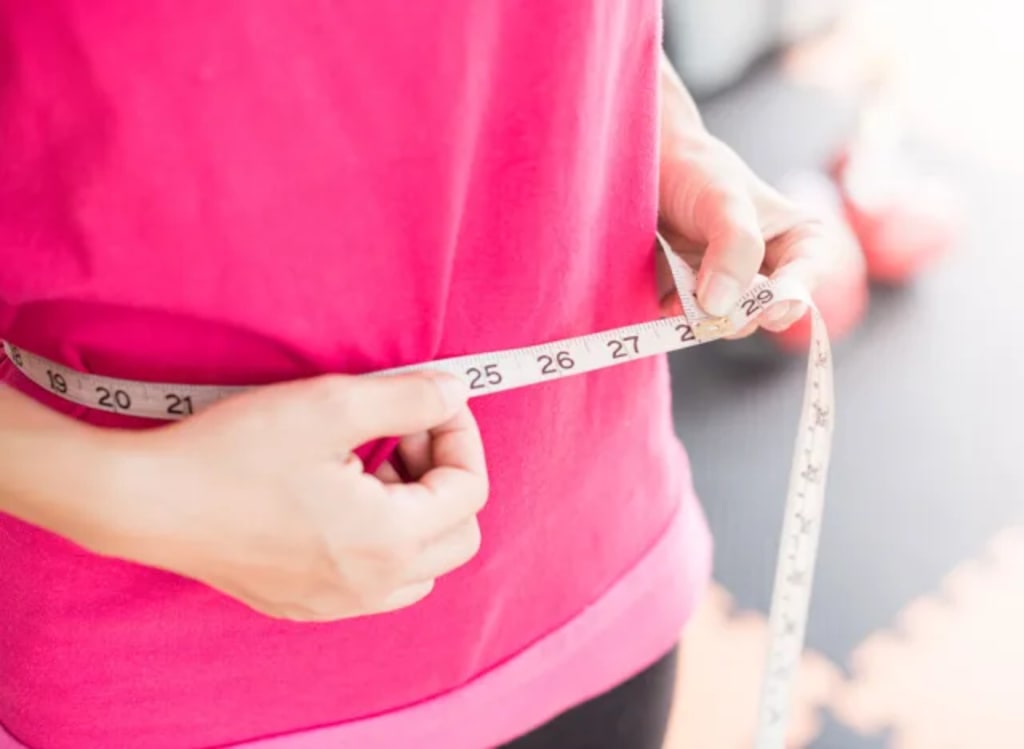
Visceral fat is a dangerous concealed health problem that is rarely discussed. Visceral fat, unlike jiggly subcutaneous fat that can be seen and touched, is found deep within your abdomen and coils around your important organs. It has been connected to serious health problems such as stroke, cancer, type 2 diabetes, and more. The majority of people are unaware that they have visceral fat, according to Roxana Ehsani, MS, RD, CSSD, LDN, Registered Dietitian Nutritionist and National Media Spokesperson for the Academy of Nutrition and Dietetics. How to Recognize If You Have It Continue reading—and don't miss these Sure Signs You've Already Had COVID to protect your health and the health of others.
1 What Makes Visceral Fat So Dangerous
According to Ehsani, "Visceral fat is a type of body fat that wraps around your internal organs and is stored in your abdominal cavity. Visceral fat is not the same as stomach fat; visceral fat is not visible to the human eye. Visceral fat, on the other hand, can have a negative impact on your general health by increasing your risk of acquiring illnesses like heart disease, diabetes, and certain malignancies."
2 Having an Excessive Waist-to-Hip Ratio
Ehsani agrees "You can't measure visceral fat, but you can use a measuring tape at home to check your waist to hip ratio to see whether you have a significant percentage of visceral fat. If your waist to hip ratio is at or above.85 in females, you're more likely to have visceral fat, and if your waist to hip ratio is at or above.90 in men, you're more likely to have visceral fat. You're more likely to acquire chronic diseases or possibly have a stroke if your waist to hip ratio is too high."
3 Your waist circumference is excessively large.
"Checking your waist circumference is another measurement you may take," Ehsani explains. If your waist circumference is 35 inches or greater for women, and 40 inches or greater for men, you are considered obese. It's a clue you have visceral fat if you hit this measurement as well."
4 You've Put On Weight
According to Ehsani, "Perhaps the first thing you notice is that your pants are too small and you need to get a new pair. Going up in pants sizes does not always mean you've gained visceral fat. Some people, such as those with eating disorders or those who are underweight, may need to gain weight to be at a healthier weight, but if you already have a high BMI, it could mean you've developed visceral fat!"
5 Ways to Recognize If You're Losing Visceral Fat
Ehsani says, "You could keep track of your dimensions!" "If you decide to measure your waist-to-hip ratio or waist circumference, for example, maintain a record of the results so you can track them. These measures could be taken once a week or even once a month. This is the simplest way to tell if you're losing visceral fat. If you don't want to measure yourself and instead go by how your clothes feel, you can keep track of it in your phone's notes app or in your calendar."
6 How Does Visceral Fat Develop?
"Visceral fat can be produced by a lack of activity, overeating, or a mix of both," Ehsani says. According to study, drinking alcohol can also contribute to visceral obesity, particularly in men. As we grow older, we lose muscle mass and acquire fat mass, resulting in an increase in visceral fat. As a result, consuming a nutritious diet is critical throughout our lives. Most people are aware of what they should eat to stay healthy, but they struggle to put it into practice. Working one-on-one with a Registered Dietitian Nutritionist can therefore help people get started on the path to eating healthier and making it a lifelong change.It's also critical to stay active throughout your life. Finding an enjoyable workout that does not feel like labor can help you stay active. Unmanaged stress can result in the accumulation of visceral fat. When a person is stressed, the stress hormone cortisol is released. When cortisol is released, it can induce people to overeat and deposit visceral fat. So it's critical to not only eat well and exercise, but also to work on lowering and managing stress. Finally, researchers discovered that a lack of sleep can lead to the accumulation of visceral fat over time.In order to stay awake, we often overeat and reach for more caffeinated and sugary drinks and meals when we don't get enough sleep. If you don't get enough sleep on a regular basis, this undesired visceral fat can soon accumulate!" Also, don't go to any of these 35 Places You're Most Likely to Catch COVID to protect yourself and others.





Comments
There are no comments for this story
Be the first to respond and start the conversation.